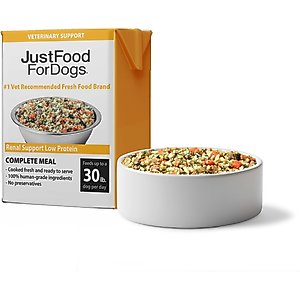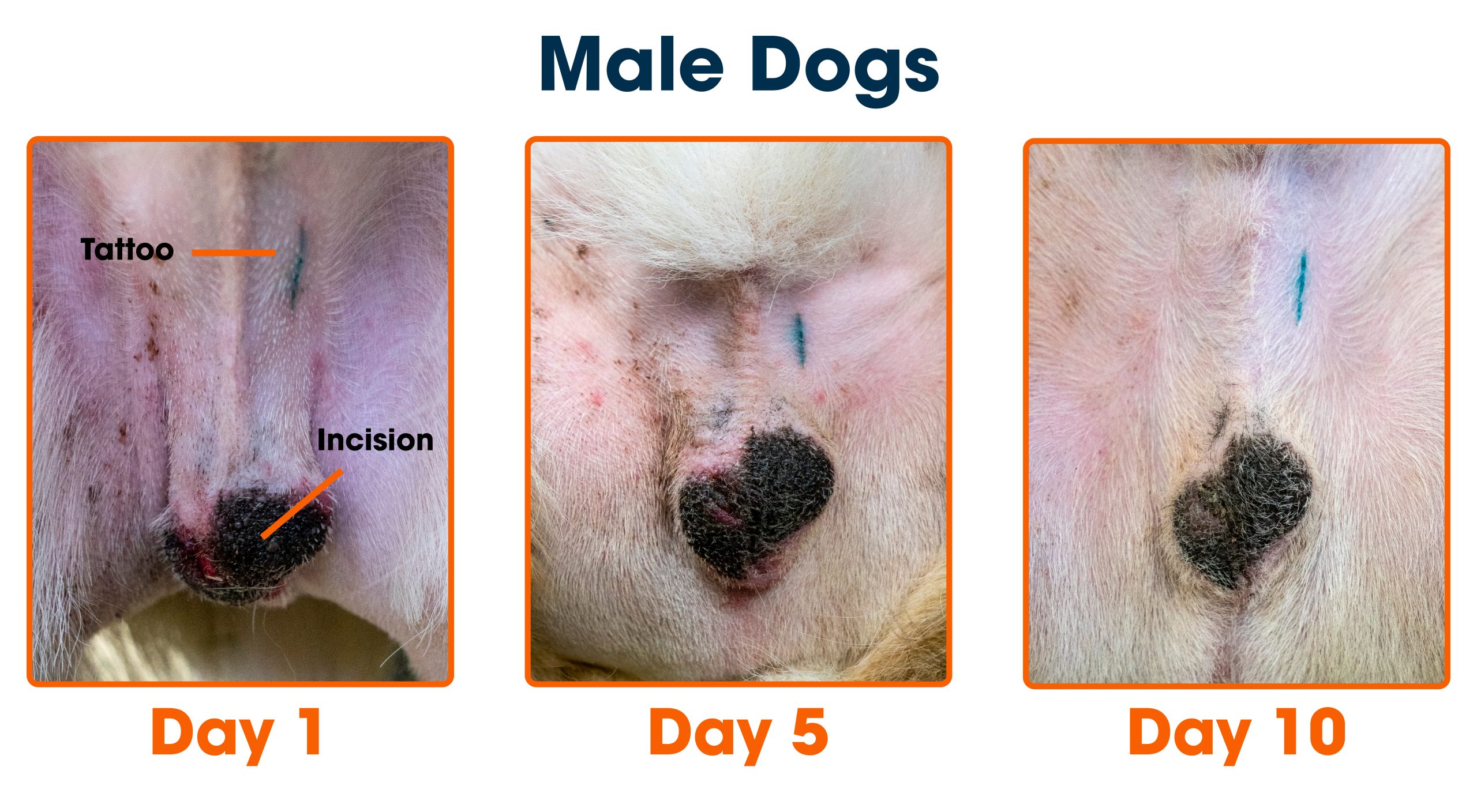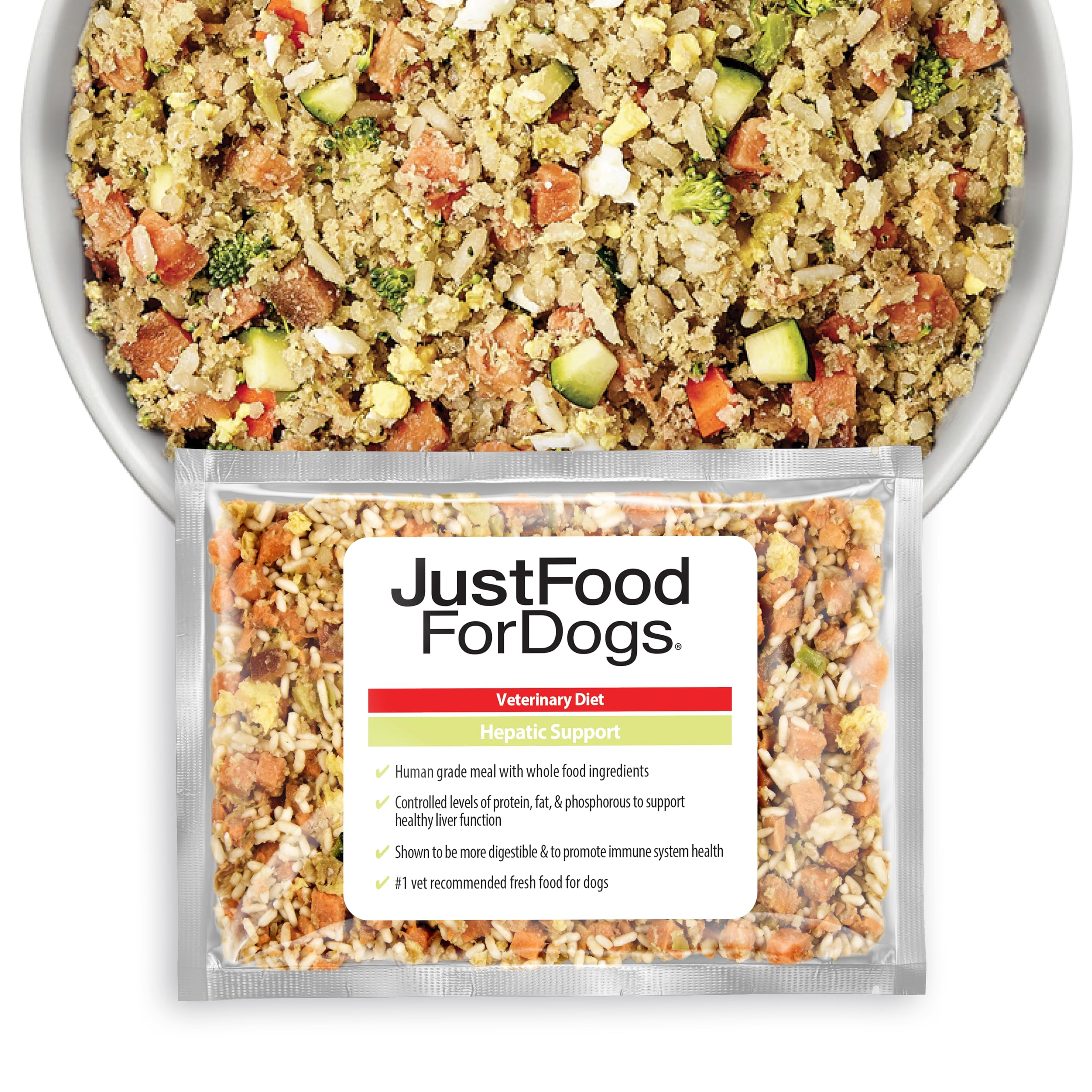Are you wondering if fresh dog food is really the best choice for your furry friend? You want to give your dog the healthiest meals, but with so many options out there, it’s hard to know what vets actually recommend.
What if the food you’re feeding now isn’t as good as you think? Keep reading to discover what experts say about fresh dog food, and how it could make a real difference in your pet’s health and happiness. This could change the way you think about your dog’s diet forever.

Credit: www.forbes.com
Vet Opinions On Fresh Dog Food
Vets offer varied opinions on fresh dog food, shaped by their clinical experiences and the latest nutritional research. Many recognize the potential benefits of fresh diets but also caution about challenges and risks. Understanding these viewpoints can help you decide if fresh food suits your dog’s unique needs.
Benefits Highlighted By Vets
Many veterinarians praise fresh dog food for its high-quality ingredients and balanced nutrition. They often note improvements in coat shine, energy levels, and digestion when dogs switch to fresh meals.
One vet shared how a picky eater improved appetite and overall health after moving to fresh food, emphasizing that freshness can make a big difference in palatability.
- Better nutrient absorption due to minimal processing
- Fewer fillers and artificial additives
- Increased hydration from fresh ingredients
These benefits suggest fresh food can be a valuable option, especially for dogs with sensitive stomachs or specific dietary needs.
Common Concerns Raised
Vets often express concerns about the safety and consistency of fresh dog food. Without proper handling, fresh ingredients can harbor bacteria harmful to pets.
There’s also the risk of nutritional imbalance if the diet isn’t carefully planned, which can lead to long-term health issues.
- Potential for bacterial contamination if not stored correctly
- Cost and convenience compared to traditional kibble
- Difficulty ensuring all essential nutrients are included
These concerns highlight why some vets urge caution and recommend consultation before making a switch.
When Fresh Food Is Recommended
Vets may recommend fresh dog food for pets with specific health challenges or dietary sensitivities. Dogs recovering from illness or surgery often benefit from nutrient-rich, easily digestible meals.
If your dog has allergies or intolerances, fresh food allows you to control ingredients and avoid triggers more easily.
- Dogs with digestive issues needing gentle nutrition
- Pets with food allergies requiring limited ingredient diets
- Older dogs needing more hydration and palatable meals
Would your dog benefit from a fresh diet tailored to their health needs? Discuss with your vet to create a plan that fits your pet’s lifestyle and well-being.
Nutritional Value Of Fresh Dog Food
Fresh dog food offers a rich nutritional profile that supports your pet’s overall health. It contains whole ingredients that keep essential nutrients intact. Many vets recognize its value for a balanced canine diet.
Key Nutrients In Fresh Diets
- High-quality proteins for muscle growth and repair
- Essential fatty acids for healthy skin and coat
- Vitamins and minerals for immune support
- Natural antioxidants to fight free radicals
- Digestible carbohydrates for steady energy
Comparison With Dry And Canned Food
Fresh dog food usually contains fewer fillers than dry kibble. It has less processing, preserving nutrient content better. Canned food may have added preservatives and higher sodium. Fresh diets offer more natural moisture than dry food. This helps keep dogs hydrated and supports kidney function.
Impact On Dog Health
Dogs eating fresh food often show improved digestion and energy levels. Their coats tend to look shinier and healthier. Fresh diets may reduce allergies and food sensitivities. Many dogs experience better weight management and muscle tone. Vets note that fresh food can support long-term wellness and vitality.
Choosing The Right Fresh Food
Choosing the right fresh food for your dog can feel overwhelming. You want to provide the best nutrition but also ensure the food suits your dog’s unique health needs. Knowing what to look for helps you make confident decisions that support your pet’s well-being.
Ingredients To Look For
High-quality protein should be at the top of your list. Ingredients like real chicken, beef, or fish offer essential amino acids for muscle health.
Fresh vegetables and fruits add vitamins and antioxidants. Look for options like sweet potatoes, carrots, and blueberries, which boost immunity and digestion.
Whole grains such as brown rice or oats supply energy and fiber. Avoid foods that rely heavily on fillers like corn or soy, as they provide little nutritional value.
Avoiding Harmful Additives
Check labels carefully for artificial colors, flavors, and preservatives. These can cause allergic reactions or digestive upset in dogs.
Some vets warn against common additives like BHA, BHT, and ethoxyquin. These chemicals may pose long-term health risks.
Opt for fresh dog food brands that use natural preservatives like vitamin E or rosemary extract. Your dog’s health deserves clean, safe ingredients.
Tailoring Diets To Specific Needs
Does your dog have allergies, weight issues, or a sensitive stomach? Fresh food can be customized to address these challenges.
For example, dogs with allergies may benefit from limited-ingredient diets focusing on novel proteins like duck or venison.
If your dog needs to lose weight, look for fresh meals with balanced protein and lower fat content. You can also consult your vet to create a diet plan that fits your dog perfectly.
What health goals do you have for your dog’s diet? Finding the right fresh food is about matching ingredients to their individual needs and lifestyle.

Credit: www.chewy.com
Preparing Fresh Dog Food Safely
Preparing fresh dog food safely is essential to protect your pet’s health and ensure they get the most benefit from homemade meals. Handling raw ingredients and storing them correctly helps avoid harmful bacteria and spoilage. You want to provide fresh, nutritious food without risking your dog’s well-being.
Storage Tips
Keep fresh dog food refrigerated at temperatures below 40°F (4°C) to slow bacterial growth. If you prepare meals in advance, portion them into airtight containers to maintain freshness and prevent contamination.
Freezing is a great option for longer storage. Freeze portions individually and thaw only what you need each day to avoid waste and spoilage.
Always label containers with the date prepared. This helps you track freshness and decide when to discard old food.
Safe Handling Practices
Wash your hands thoroughly before and after handling raw meat or fresh ingredients. This simple step can prevent cross-contamination in your kitchen.
Use separate cutting boards and utensils for your dog’s food and your own meals. It’s a small habit that reduces the risk of spreading harmful bacteria.
Cook meats to the appropriate temperature if you choose to partially cook ingredients. Some vets recommend this to kill pathogens without losing all the nutritional value.
Preventing Nutritional Imbalance
Fresh dog food needs to be balanced with the right amounts of protein, fats, vitamins, and minerals. Consult your vet or a pet nutritionist to create recipes that meet your dog’s specific needs.
Don’t rely on guesswork. Many ingredients may look healthy but lack essential nutrients or have excesses that can harm your dog over time.
Supplements might be necessary to fill gaps in homemade meals. Have your dog’s health monitored regularly to adjust their diet as needed.
Vet-approved Fresh Food Brands
Choosing fresh dog food can feel overwhelming with so many options on the market. Luckily, veterinarians often guide pet owners toward brands they trust for quality and nutrition. These vet-approved fresh food brands stand out because they meet strict health standards and offer balanced meals that support your dog’s well-being.
Top Recommended Brands
- The Farmer’s Dog:Known for personalized meal plans based on your dog’s size, age, and health needs.
- Nom Nom:Offers freshly cooked meals with human-grade ingredients and transparent sourcing.
- PetPlate:Vet-formulated recipes with a focus on maintaining healthy weight and digestion.
- Ollie:Customizes meals using high-quality proteins and vegetables, avoiding fillers and preservatives.
- JustFoodForDogs:Provides fresh, whole-food recipes that many vets recommend for dogs with specific health issues.
What Makes Them Stand Out
These brands don’t just fill bowls; they focus on nutrition that supports your dog’s lifestyle. Many use human-grade ingredients, meaning you could eat the same food your dog enjoys. This transparency in sourcing builds trust with both vets and pet owners.
Another key factor is vet involvement in recipe creation. When vets help design meals, it ensures the food meets essential nutritional requirements. This gives you confidence that your dog is getting the right balance of proteins, fats, vitamins, and minerals.
Portion control and customization are also crucial. Your dog’s needs change with age, activity level, and health conditions. Brands that tailor meals to these factors make feeding easier and more effective.
Have you noticed how your dog’s energy or coat changes after switching to fresh food? Many pet owners share stories of improved digestion and vitality. Choosing a vet-approved brand might just be the difference your dog needs.
Cost And Convenience Factors
Cost and convenience play a big role in deciding fresh dog food. Many pet owners wonder if fresh options fit their budget and daily routine. Understanding these factors helps in making a clear choice for your dog’s health and your lifestyle.
Budgeting For Fresh Food
Fresh dog food often costs more than dry kibble. Prices depend on ingredients and brand quality. Feeding fresh can mean buying more meat, vegetables, and supplements. Planning a monthly budget helps avoid surprises. Some owners find costs balance out by buying in bulk or choosing local produce.
Time Investment Considerations
Preparing fresh meals needs time. Shopping, chopping, and cooking add to daily chores. Some pet owners enjoy this as a bonding activity. Others find it hard to fit into busy schedules. Meal prepping for several days can save time. Consistency is key to keep your dog’s diet balanced.
Alternatives To Homemade Meals
Pre-made fresh dog food offers convenience. These products come ready to serve or need minimal preparation. Subscription services deliver fresh meals to your door. They often use high-quality ingredients and follow vet guidelines. This option suits busy owners who want fresh without hassle.
Success Stories And Case Studies
Many pet owners have shared inspiring stories about how switching their dogs to fresh food has transformed their pets’ health and happiness. These success stories and case studies provide real-life proof that fresh dog food can be a beneficial choice. They also help answer the question: do vets recommend fresh dog food?
Dogs Thriving On Fresh Diets
Take Bella, a seven-year-old Labrador who struggled with allergies and dull coat for years. After her owner switched to a fresh, balanced diet, her skin cleared up, and her coat became shiny within weeks. Bella’s energy levels soared, making her more playful and active than ever before.
Then there’s Max, an older dog with digestive issues that improved dramatically after fresh food was introduced. His owner noticed fewer stomach upsets and more regular bowel movements, which made life easier for both of them. These stories show how fresh ingredients can support digestion and overall well-being.
- Improved coat shine and skin health
- Higher energy and activity levels
- Better digestion and reduced stomach issues
Veterinary Testimonials
Many veterinarians now support fresh dog food as part of a healthy diet. Dr. Emily Carter, a vet with over 15 years of experience, shares, “I’ve seen dogs regain vitality and reduce chronic conditions after switching to fresh diets.”
Another vet, Dr. James Lee, points out that fresh food often contains fewer fillers and artificial additives. “This cleaner nutrition can help dogs with food sensitivities and improve their immune response,” he explains.
Have you ever wondered if your dog’s current diet might be holding back their full potential? Consulting a vet about fresh food options can open new paths to better health tailored to your dog’s unique needs.

Credit: nypost.com
Frequently Asked Questions
Do Vets Generally Recommend Fresh Dog Food?
Many vets do recommend fresh dog food for its high nutrient quality. It supports better digestion and overall health. However, they stress balanced nutrition and proper handling to avoid contamination. Always consult your vet before switching your dog’s diet.
What Are The Benefits Of Fresh Dog Food?
Fresh dog food offers improved nutrient absorption and better taste. It often contains fewer preservatives and fillers than dry food. Many dogs show increased energy and healthier coats. Vets highlight its role in reducing allergies and digestive issues.
Are There Any Risks With Fresh Dog Food?
Fresh dog food can spoil quickly if not stored properly. It may carry bacteria like Salmonella if hygiene is poor. Vets warn about nutritional imbalances if homemade diets lack variety. Always follow safe storage and consult a vet for recipes.
How Do Vets Compare Fresh Food To Kibble?
Vets see fresh food as more natural and nutrient-dense than kibble. Kibble is convenient but may have preservatives and lower moisture. Fresh food benefits digestion and hydration but requires more effort. The best choice depends on your dog’s needs and lifestyle.
Conclusion
Fresh dog food offers many benefits for dogs. It keeps them healthy and happy. Vets often recommend fresh food for its nutrients. It can improve your dog’s energy levels. Fresh food helps with digestion too. It’s important to choose quality ingredients.
Consult your vet for the best options. They can guide you based on your dog’s needs. Always check the labels for safety. A balanced diet is key for your pet’s health. Fresh food might be a great choice. Keep your furry friend in mind when choosing meals.
Their health matters most.







